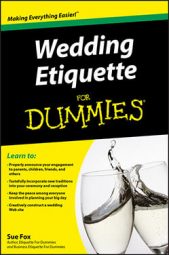The groom usually asks males relatives or close friends to stand as his groomsmen at the wedding. He may also choose to ask the spouse or significant other of one of the bridesmaids if he and his bride spend a lot of time with them as a couple.
The groom asks his brother, best friend or father to be his best man. It makes no difference whether the best man is single or married. Though the best man may have fewer duties than the maid of honor, his duties are just as important, so think “reliable” and choose your best man wisely.
If you’re lucky enough to have two men you want as best men, it’s perfectly acceptable to give them both the title. Many grooms are close to their fathers but don’t know how to honor them as the wedding; having your father stand as one of your best men is a great way to include him in the ceremony. You may also have a hard time deciding between two brothers or friends. Both men may be equally responsible and available, so putting them both in the position works out well. As soon as you can, make sure you clearly define who will be in charge of which tasks. The best man has an assortment of responsibilities before and during the wedding, and he should be ready to run any last-minute errands or offer assistance to anyone who needs it at the wedding.
The best man should also keep an eye out for any potential mishaps at the bachelor party, rehearsal dinner and reception. He should be prepared to deal with the unexpected and do what he can to try to avoid any embarrassing moments for the bride and groom.
Another male attendant is the junior groomsman, who’s traditionally between the ages of 9 and 14. During the ceremony, he stands at the front of the aisle with the groom; he doesn’t walk down the aisle with the flower girl. The junior groomsman is expected to be at most of the events that the rest of the wedding party attends, but he doesn’t have to participate in or contribute to the bachelor party.
Ushers are typically male, and the distinction between ushers and groomsmen is the fact that ushers sit in the pews during the ceremony instead of standing on the altar with the groom. Many couples choose to have their groomsmen also serve as ushers, but they can be two separate positions.

